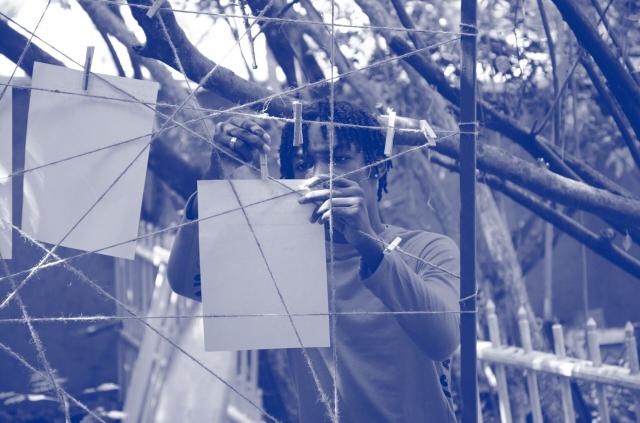Coordinators, governments, schools and the cultural field are working together on this fourth edition of Cultural Education with Quality to ensure that every child receives a good cultural education. We have been working in the Netherlands at improving cultural education within the educational sector for nearly 16 years. Furthermore, this edition aims to thoroughly prepare the educational sector for the 2026 curriculum reform.
Who can apply for subsidies?
This grant scheme works with coordinating cultural institutions, known as 'coordinators'. Every municipality in the European Netherlands with a population of more than 90,000 has a dedicated coordinator; elsewhere there are regional or provincial coordinators. The coordinators contact schools to make sure they are connected to the cultural field.
Grant applications can only be made through the provincially or municipally designated coordinator. This requires a signed declaration of adhesion. The amount awarded is dependent upon the municipality's or province's population. This amount must be matched by an equivalent amount from local government for local programmes.
Schools and cultural institutions looking for local partners should get in touch with their municipal or regional coordinator. See the overview on this website.
For what can you apply for a grant?
You can apply for a grant for strengthening cultural education quality in a sustainable way. This can be achieved through intensive collaboration between the educational and cultural sectors, among other things. Such a collaboration is based on an educational vision of cultural education as a means of increasing equality of opportunity by focusing on pupils' and students' cultural development. This goal can be achieved through:
- sustainable improvement in the quality of cultural education through collaboration between the educational sector and the cultural field;
- increasing the expertise of teachers, educators and cultural partners in the cultural education field.
There are an additional two non-compulsory goals:
- the development of integrated cultural education linked to other subjects
- connecting the normal school curriculum with extra-curricular activities to draw pupils and students into the cultural sphere.
Projects may be targeted at primary schools, secondary schools, secondary vocational education or special education. This allows coordinators to tailor their plans as best possible to the local situation.
How to apply for a grant?
- Please consult the ‘Documents’ box on the right of this page for essential information, including the grant scheme and the conditions to which your application must adhere. There is also a model form to guide you in making your application.
- Grant applications must be submitted via My Fund, our online application environment. Click 'Mijn Fonds' or 'Subsidie aanvragen' at the top right of this page to make a 'Mijn Fonds' account (this may take a few days) and start your application.
Good to know:
- Applications may be submitted from 1 December 2023, 09:00 Dutch time. Applications must be received by the Fund by 1 July 2024, 16:00 Dutch time at the latest.
- We will inform you in writing of our decision regarding your application at the latest 22 weeks after the receipt of your application.
- The application amount is dependent upon the number of inhabitants in your region
- The municipality or province where the activities will be carried out must match the amount requested by 100%.
- Applications are only possible with a signed declaration of adhesion.
- You must apply the three cultural codes as described in Article 4.6 of the grant scheme.
- Your application must contain a signed declaration of adhesion by the responsible councillor or deputy of the matching municipality or province.
- You are obliged to share knowledge, monitor and evaluate all activities for which you receive a grant.
- The grant ceiling for all requests is €15,231,238 per calendar year.
- The CmK scheme for the special municipalities in the Caribbean part of the Kingdom will open in quarter 4 of 2024.
- The Fund will soon receive additional resources from the Ministry of Education, Culture and Science to support applicants who are included in the 2025-2028 multi-year scheme in working on Fair Practice. You can read more information about the distribution of these resources among the (positively approved) applicants for the multi-year schemes here. Further information will follow.
To calculate hourly rates that comply with Fair Pay, we refer to the calculation tool for art professionals in cultural education and amateur art from Platform ACCT, the calculation tool from Digipacct, other existing collective agreements on remuneration such as a collective labor agreement and the social dialogue between employers or clients and employees or contractors.
Looking for inspiration?
View a list of inspirational documents and websites that match the themes of CmK here (dutch)
Read more


